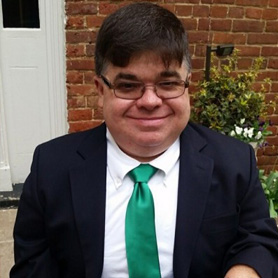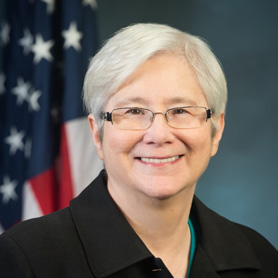|
|
Info about Fair Housing in Maryland - including housing discrimination, hate crimes, affordable housing, disabilities, segregation, mortgage lending, & others. http://www.gbchrb.org. 443.347.3701.
|
|
Deer - a member of the Menominee tribe in Wisconsin - was a champion of tribal sovereignty, the first chairwoman of the Menominee in Wisconsin, and the first Native American woman to lead the Bureau of Indian Affairs. She was the first member of her tribe to graduate from the University of Wisconsin-Madison, the first to receive a graduate degree, the first woman to lead the Menominee, and the first woman to lead the federal Bureau of Indian Affairs.
In the early 1970s, Deer led the effort to overturn the federal government’s policy of “termination” — a series of laws that since the late 1940s had restricted and in some cases eliminated tribal sovereignty in favor of integration within the rest of American society. She spent years meeting with representatives and senators, writing briefs and organizing protests. In 1973, President Richard M. Nixon signed the Menominee Restoration Act, and in 1975, the tribe regained its sovereignty. She also worked for the Bureau of Indian Affairs, the Peace Corps, and later taught at the University of Wisconsin’s School of Social Work.
Deer became President Bill Clinton's assistant secretary of the interior for Indian affairs in 1993 in charge of the Bureau of Indian Affairs. She vowed to reform the bureau from top to bottom and make it work for Native Americans. By the end of her tenure in 1996, she had made enemies among Native American advocates and Administration politicos, though most agreed she had done the best with an awful hand. She did successfully defended the agency against severe budget cuts demanded by Republicans in their Contract for America after they took control of Congress in 1994, denouncing them as “genocide.”
*****
Sources:
Read the August 18, 2023 New York Times article.

The National Disability Rights Network (NDRN) and 92 other national and 67 state organizations have sent a letter dated August 1, 2023 to Congressional leadership asking them to unequivocally denounce white supremacist, anti-immigrant rhetoric and its use by Members of Congress, and encourage Members of your caucuses to refrain from using this dangerous rhetoric.
The letter reads:
"We the undersigned organizations, urge Congressional leadership to unequivocally denounce white supremacist, anti-immigrant rhetoric and its use by Members of Congress, and encourage Members of your caucuses to refrain from using this dangerous rhetoric. As we approach the fourth anniversary of the anti-immigrant terrorist attack in El Paso, Texas, that killed 23 people on August 3rd , 2019, we are reminded of the deadly impact of this rhetoric.
The perpetrator of the El Paso attack was motivated by the white supremacist “great replacement” conspiracy, which he believed was being facilitated by a “Hispanic invasion.” Four years later, this same “invasion” and “replacement” rhetoric is leveraged by Members of Congress to further political agendas related to immigration and national security. They echo white supremacist claims of a “white genocide” orchestrated by a “Jewish cabal”, who use immigrants and minority populations as pawns in a nefarious plot. This rhetoric, and its related dog whistles, dehumanize migrants and asylum seekers, posing them as an existential threat that must be met with violence.
Again and again, our country has experienced hate violence inspired by this conspiratorial rhetoric. We know this because terrorists tell us this in their screeds. Driven by fears of “replacement” and “invasion,” terrorists targeted the Latino community in El Paso, Texas, Black Americans in Buffalo, New York, and Jews in Pittsburgh, Pennsylvania, and in Poway,California, among other communities.
Despite this repeated violence across the US, Members of Congress continue to invoke the antisemitic and anti-immigrant conspiracy theories that have inspired multiple violent attacks. Members have referred to peaceful migrants and asylum seekers as “invaders” or as an “invasion” 90 times in their official capacity in hearings, on the floor, or in official press releases.
Immigration and border policy are important topics that demand Congressional discussion. We implore Senate and House leadership to not only condemn references to conspiratorial and bigoted rhetoric, including references to the “great replacement” and an “invasion,” but to encourage the Members of your caucus to refrain from using such rhetoric. We cannot allow prejudiced and inflammatory language to dominate critical policy conversations, nor to threaten the safety and liberty of our communities.
*****
Sources:
Read the August 1, 2023 Letter.
The Maryland Alliance for Justice Reform is hosting an important event from 9:30 a.m. to 4:00 p.m. on Saturday, September 9th at the University of Baltimore School of Law on "Rethinking Corrections and Rehabilitation" in preparation for the 2024 legislative session and beyond.
Featured speakers include Secretary Carolyn J. Scruggs, Maryland Department of Public Safety & Correctional Services, and Maryland Attorney General Anthony Brown.
Major sessions will be:
Re-imagining Maryland’s Approach to Corrections and Rehabilitation.
Justice Reinvestment.
(1) Demystifying and Reforming Maryland's Parole Policies and Practices - This engaging discussion will highlight the current policies and practices associated with seeking parole in Maryland and the decision-making process.
(2) Unlocking Potential through Correctional Education - This panel discussion delves into the transformative impact of correctional education, exploring how it equips individuals with essential skills, knowledge, and opportunities for personal growth, fostering a pathway towards successful reintegration into society upon release.
Register Now for this important (free) conference!
*****
Source: https://www.ma4jr.org/
50th Anniversary Event to be held September 12th
On Tuesday, September 12, 2023, from 1:00 – 2:30 pm EDT, the U.S. Department of Housing and Urban Development (HUD) will host a hybrid event commemorating the 50th anniversary of the Rehabilitation Act of 1973, a landmark law providing civil rights to persons with disabilities in all federal programs and activities. What is the Act
The Rehabilitation Act is a core component of FHEO’s mission to ensure affordable, accessible, and integrated housing for persons with disabilities nationwide, and the promise of housing choice for all. Section 504 of the 1973 Rehabilitation Act was the first disability civil rights law to be enacted in the United States. It prohibits discrimination against people with disabilities in programs that receive federal financial assistance, and set the stage for enactment of the Americans with Disabilities Act. Section 504 works together with the ADA and IDEA to protect children and adults with disabilities from exclusion, and unequal treatment in schools, jobs and the community. The law also established the Access Board (section 502). Later amendments strengthened requirements for access to electronic and information technology in the Federal sector (Section 508). With passage the Patient Protection and Affordable Care Act in 2010, a new provision (section 510) was added to address access to medical diagnostic equipment. The Access Board plays a lead role in developing and maintaining standards for electronic and information technology under section 508 and medical diagnostic equipment covered by section 510. The Disability Rights Education and Defense Fund (DREDF) - a leading national civil rights law and policy center directed by individuals with disabilities and parents who have children with disabilities - provides these materials and others regarding the Act: Sample Section 504 Plan and Health Care Plan for a Student with Diabetes A Comparison of ADA, IDEA, and Section 504 About the Event During the HUD event, panelists will examine the history of the disability rights movement, successes, emerging issues, and the continued need for vigorous enforcement of fair housing and civil rights laws prohibiting discrimination against persons with disabilities and ensuring equal opportunity. The event will feature a discussion of disability rights in federally funded programs with Disability Rights Attorney, John Wodatch, Chief Program and Policy Officer, Regina Blye, & HUD Associate General Counsel, Jeanine Worden, discuss disability rights in federally funded programs, along with a interesting video underscoring the importance of housing choice for all. Learn more about the event here.  John Wodatch, Disability Rights Attorney  Regina Blye, Chief Program and Policy Officer, The Christopher and Dana Reeve Foundation  Sean Barrett, Program Analyst, Compliance and Disability Rights Division, HUD FHEO  Jeanine Worden, HUD Associate General Counsel for Fair Housing
You can register to watch the event virtually by clicking the link or scanning the QR code below: http://bit.ly/3QO67sh.
|
|
HUD's mission is to create strong, sustainable, inclusive communities and quality affordable homes for all. More information about HUD and its programs is available on the Internet at www.hud.gov and espanol.hud.gov. You can also connect with HUD on social media or sign up for news alerts on HUD's Email List. |
HUD COVID-19 Resources and Fact Sheets
*****
Sources:
HUD Fair Housing News, August 31, 2023.
https://www.eeoc.gov/statutes/rehabilitation-act-1973.
https://www.access-board.gov/law/ra.html
https://dredf.org/legal-advocacy/laws/section-504-of-the-rehabilitation-act-of-1973/